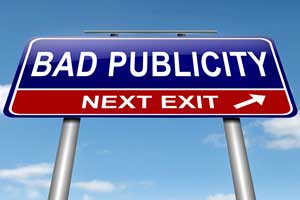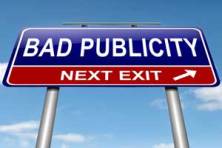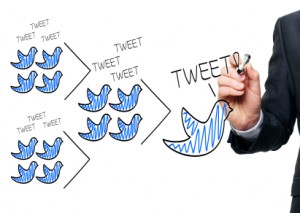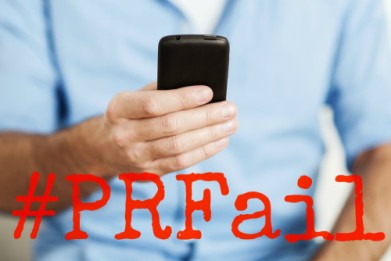By: Sarah Copeland
It’s no secret. Going into the field of PR is going to be tough. Of course, many of our friends and family won’t exactly understand what we do for a living, but hopefully, they can also understand the difficulties we face. There will be many choices to make, and the hardest one will be a personal choice. Do I want to keep a job at a company who has policies and practices I don’t agree with? Or should I go with honesty and integrity?
I’ve always been a person with high integrity. My peers would probably say the same thing if asked about me. Integrity has just been a characteristic I could never ignore. I always had to do my best no matter what. And now, in several of my courses actually, I hear how, at some point in PR, I may be asked to do my job but not agree with the methods asked of me.
Of course, this does not describe every PR career. I spent an entire blog talking about how PR is NOT spin and how it can be a very respectable field. And it can be. So, as my last blog for my PR communications course, I want to talk about how, in my future, I’ll hold on to my values and keep my integrity throughout my career.

Remaining honest and maintaining integrity has a lot to do with ethics. I’m not going to be too detailed about ethics and PR mainly because I already have a blog about that topic. But they are extremely well-connected topics.
In the end, it’s all about credibility and staying true to your own values. And this doesn’t just concern PR specialists. Being transparent and trustworthy are important qualities for companies to possess in order to be trusted by publics. Trust is so important in PR that even Edelman has a whole PowerPoint dedicated to measuring trust.
It’s incredibly difficult to express how important all of this is in the long run. Integrity and trust build or break relationships. There is so much that our career demands from those of us going into the PR field. There are plenty of individuals who have left companies and started their own business so that they can keep their integrity. Honestly, I’m glad that is an option.
I’ll end with a lesson that has been taught to me this entire semester: You should love what you do and if you don’t you need to make a change. Keep your honor and your integrity in your career because it’s up to you to decide how you want to do things.
References:
Duren, M. (2014, February 04). Is Integrity A Lost Currency in Public Relations? | Fashion PR Public Relations | PR Couture. Retrieved May 05, 2016, from http://www.prcouture.com/2014/02/integrity-a-lost-currency-in-public-relations/
Edleman. (2016, January 17). 2016 Edelman TRUST BAROMETER – Global Results. Retrieved May 05, 2016, from http://www.slideshare.net/EdelmanInsights/2016-edelman-trust-barometer-global-results
Fisherhouse. (n.d.). Honesty, Integrity and Ethics in Public Relations. Retrieved May 5, 2016, from http://www.fisherhouse.com/courses/honesty.pdf
Jack, S. (n.d.). Public Relations. Retrieved May 5, 2016, from https://www.pinterest.com/shebejack/public-relations/
Minton-Taylor, R. (2015, April 28). Integrity and trust (part one). Retrieved May 05, 2016, from http://www.behindthespin.com/features/integrity-and-trust-part-one
Minton-Taylor, R. (2015, May 04). Integrity and trust (part two). Retrieved May 05, 2016, from http://www.behindthespin.com/news/integrity-and-trust-part-two
Minton-Taylor, R. (2015, May 08). Integrity and trust (part three). Retrieved May 05, 2016, from http://www.behindthespin.com/features/integrity-and-trust-part-three
Print Consultancy. (n.d.). Retrieved May 05, 2016, from http://pr-int.net/


 Image Source
Image Source









 Image Source
Image Source






